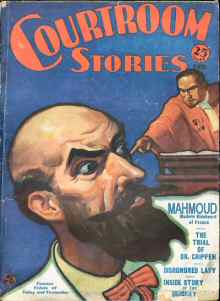Therefore we say that to force the Spanish government to withdraw from Iraq the resistance has to measured by painful strikes against their forces and accompanying this a informative campaign clarifying the truth of the situation inside Iraq, and we must absolutely gain from the approaching date of general elections in Spain in the third month of the coming year. We believe that the Spanish government will not endure two or three attacks as a maximum limit because it will be forced to withdraw afterwards due to the popular pressure on it, for if its forces remain after these strikes it is almost certain the Socialist forces will win the elections, as one of the main goals of the Socialist party will be the withdrawal of the Spanish troops . . . the dominoes will fall quickly, although the basic problem will remain of toppling the first piece.
-Iraq al-Jihad, circa August 2003
"MADRID TRAIN BOMBINGS PROBE FINDS NO AL-QAEDA LINK" was the headline of a widely-circulated Associated Press story two weeks ago. Citing a "Spanish intelligence chief" and a "Western official intimately involved in counterterrorism measures in Spain," the AP reported that "A two-year probe into the Madrid train bombings concludes the Islamic terrorists who carried out the blasts were homegrown radicals acting on their own rather than at the behest of Osama bin Laden's al-Qaeda network." While acknowledging that the masterminds behind the attack were "likely motivated by bin Laden's October 2003 call for attacks on European countries that supported the U.S.-led invasion of Iraq" and that "the plotters had links to other Muslim radicals in western Europe," the AP cited the Spanish intelligence chief as saying that there were "no telephone calls between the Madrid bombers and al Qaeda and no money transfers" and "no evidence they were in contact with the al Qaeda leader's inner circle."
Such a view is by no means new. Indeed, in June 2005 Dateline NBC reported that "Madrid is cited as the key turning point in the evolution of Islamic terror. Initially, Spanish and U.S. counterterrorism officials sought links between al-Qaeda (or, as the CIA now describes it, 'al-Qaeda Central'). But quickly they realized there weren't any. . . . It required no central direction from the mountains of Pakistan, simply a charismatic leader with links to men trained in the war in Afghanistan against the Soviet Union."
SUCH A VIEW is no doubt attractive, but there are serious problems with it. As the March 11 Commission (an independent Spanish investigation into the attacks parallel to the U.S. 9/11 Commission) noted, there were numerous connections between the masterminds of the 3/11 attacks, al Qaeda, and a number of known al Qaeda associate groups including Ansar al-Islam, the Moroccan Islamic Combatant Group (and its offshoot Salafi Jihad), and Abu Musab Zarqawi's al Qaeda in Iraq (then al-Tawhid wal Jihad). There is also the al Qaeda strategy document Iraq al-Jihad, which appears to lay out in detail plans for attacks in Spain several months prior to the country's elections.
According to the Norwegian Defense Research Establishment (FFI)'s report on the motivations of Islamist terrorism in Europe, "The researchers from the FFI consider it likely that the terrorists behind the Madrid massacre were familiar with the contents of this strategy document" as well as that "the evidence leaves few doubts that the attacks in Madrid were carried out by al-Qaeda affiliates in Spain."
Most importantly, the March 11 Commission identified former Egyptian army explosives expert Rabei Osman Sayed Ahmed as one of the planners of the Madrid bombings. According to an arrest warrant issued by Spanish judge Juan del Olmo, Ahmed is "a suspected member of the Egyptian Islamic Jihad" who "took over leadership of a group of followers of extremist Islamist ideology, supporters of the Jihad and of Osama bin Laden" while living in Madrid. Now on trial in Milan for international terrorism, Ahmed was wiretapped by Italian authorities telling an associate that "The Madrid attack is my project and those who died as martyrs are my dearest friends."
Given that Egyptian Islamic Jihad is currently headed by al Qaeda second-in-command Ayman al-Zawahiri, one would think that such a statement from one of its members, to say nothing of various statements from senior Spanish and Italian law enforcement and judicial officials, would settle the issue of al Qaeda involvement in the Madrid train bombings once and for all.
(Moreover, a key piece of the Spanish intelligence chief's claims, that no money transfers occurred between al Qaeda and the masterminds of the Madrid bombings, may also be in doubt. Both El Mundo and Corriere della Sera reported in September 2004 that Ahmed stated in a conversation wiretapped by Italian authorities that during his time in Madrid he was being financed by Sheikh Salman al-Awdah, a radical Saudi cleric who has been described as a "friend" of Osama bin Laden and been praised by the al Qaeda leader for his support in a number of al Qaeda propaganda videos.)
THE SPANISH INTELLIGENCE CHIEF'S CLAIM that there was no al Qaeda link to the Madrid bombings might be better understood within the context of Spanish domestic politics. After all, if the goal of the attacks was to topple the Popular Party government in order to bring about a Spanish withdrawal from Iraq, it would seem that al Qaeda was successful both in achieving the desired results and reading the Spanish political scene--which the Zapatero government might, understandably, be loathe to admit.
What is alarming is that U.S. counterterrorism officials have apparently also missed these tell-tale signs of al Qaeda involvement in connection with a major terrorist attack in a European capital. Although this might not be very surprising: According to a May 2004 article in U.S. News & World Report, when asked about Iraq al-Jihad "Analysts at the Central Intelligence Agency also found the article unremarkable, 'a document like any number of other documents,' says one intelligence official."
Perhaps it was, but it was almost certainly a document whose online publication and dissemination had tragic consequences for the Spanish people.
ANY NUMBER OF INVESTIGATIONS into U.S. intelligence failures prior to 9/11 have revealed key gaps in the understanding of al Qaeda. As the FFI report on Islamist terrorism in Europe makes clear, there are no strict organizational division between al Qaeda and its various allies and associate groups, thus making the overlap between them fluid and difficult for investigators to track.
To rule out an al Qaeda link to the Madrid bombers at this stage would seem counterintuitive in light of the information currently available from any number of credible sources. For instance, Judge Juan del Olmo, who is heading up the official Spanish investigation into the attacks, has said that the Madrid bombings were "were carried out by a local cell linked to a international terrorist network . . . of Islamic fanatics which planted the bombs had links stretching through France, Belgium, Italy, Morocco and to Iraq." Is it that much to ask that the U.S. intelligence community be at least as informed as members of the Spanish judiciary?
Dan Darling is a counterterrorism consultant for the Manhattan Institute Center for Policing Terrorism. |
 Italy's top criminal court on Thursday upheld the conviction on international terrorism charges of an Egyptian jailed as one of the chief suspects in the 2004 Madrid train bombings, a lawyer said. The Court of Cassation confirmed the conviction of Rabei Osman and upheld a previous eight-year jail sentence by a Milan appeals court, said lawyer Luca D'Auria.
Italy's top criminal court on Thursday upheld the conviction on international terrorism charges of an Egyptian jailed as one of the chief suspects in the 2004 Madrid train bombings, a lawyer said. The Court of Cassation confirmed the conviction of Rabei Osman and upheld a previous eight-year jail sentence by a Milan appeals court, said lawyer Luca D'Auria.

 The verdict on those accused of involvement in Europe's worst Islamist terrorist attack will be announced in a Spanish court today after a trial that has lasted four months and 17 days and heard testimony from more than 300 witnesses.
The verdict on those accused of involvement in Europe's worst Islamist terrorist attack will be announced in a Spanish court today after a trial that has lasted four months and 17 days and heard testimony from more than 300 witnesses.  (AKI) - In a surprise move, some of the main defendants in the maxi-trial for the 2004 Madrid train bombings began a hunger strike on Thursday. According to various Spanish websites Youssef Belhadj, Hassan el Haski,
(AKI) - In a surprise move, some of the main defendants in the maxi-trial for the 2004 Madrid train bombings began a hunger strike on Thursday. According to various Spanish websites Youssef Belhadj, Hassan el Haski,  The man accused of masterminding Europe's worst Islamist terror attack took the stand yesterday as the trial opened in Madrid of 29 men accused over multiple train bombings in the Spanish capital on 11 March 2004.
The man accused of masterminding Europe's worst Islamist terror attack took the stand yesterday as the trial opened in Madrid of 29 men accused over multiple train bombings in the Spanish capital on 11 March 2004.  An Islamic radical accused of playing a key role in the Madrid train bombings was extradited from Italy to Spain on Friday.
An Islamic radical accused of playing a key role in the Madrid train bombings was extradited from Italy to Spain on Friday.  An Egyptian man who is one of the chief suspects in the 2004 Madrid train bombings was sentenced to 10 years in jail by an Italian court on Monday. A Milan court convicted
An Egyptian man who is one of the chief suspects in the 2004 Madrid train bombings was sentenced to 10 years in jail by an Italian court on Monday. A Milan court convicted